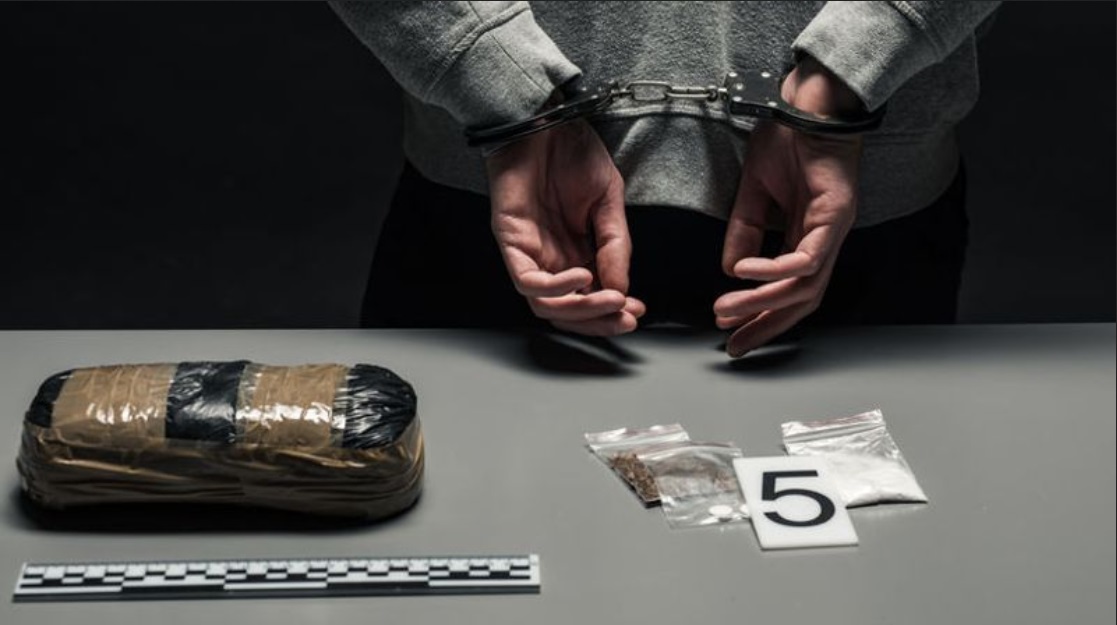
Comprehensive Guide to Drug Possession and Transportation Penalties in Iran
Table of Contents
Overview of Drug Crimes in Iranian Law
In the legal framework of the Islamic Republic of Iran, drug-related offenses are prosecuted with utmost severity. These include cultivation, production, distribution, possession, and trafficking. Individuals found guilty of transporting or possessing narcotics face serious consequences, including long-term imprisonment, heavy fines, or even capital punishment, depending on the substance and quantity involved. For in-depth details on sentencing specifics, see this guide on مجازات حمل مواد مخدر.
Key Takeaways:
- Severe Penalties Apply: Drug possession and transportation in Iran are treated as serious crimes, often punishable by long-term imprisonment, heavy fines, or even the death penalty.
- Type and Quantity Matter: Punishment depends heavily on the drug category and the amount involved, with synthetic drugs like meth and ecstasy receiving the harshest treatment.
- Trafficking vs. Possession: Transporting drugs is typically considered trafficking, which carries far stricter consequences than possession for personal use.
- Revolutionary Courts Handle Cases: Drug crimes are prosecuted in Iran’s Revolutionary Courts, which often fast-track trials and can issue capital sentences.
- Repeat Offenders Face Escalation: Sentences increase with repeated offenses, and a third conviction for trafficking can result in mandatory execution.
Classification of Narcotics Under Iranian Law
Iranian anti-narcotics legislation classifies illegal substances into distinct categories, each bearing specific penalties:
- Group 1: Traditional drugs like opium, cannabis, hashish.
- Group 2: Synthetic drugs such as heroin, morphine, and cocaine.
- Group 3: Industrial psychotropics (methamphetamine, ecstasy).
- Group 4: Precursor chemicals used for drug synthesis.
Each category carries different levels of punishment based on possession volume, intent (personal use vs. trafficking), and repeat offenses.
Penalties for Drug Possession: Thresholds and Consequences
The punishment for drug possession in Iran varies significantly depending on the weight and type of the substance:
| Substance | Quantity | Penalty |
| Opium / Hashish | < 50g | Fine up to 1M Rials or up to 3 months imprisonment |
| Opium / Hashish | 50g – 5kg | 6 months to 5 years imprisonment + lashes |
| Opium / Hashish | 5kg – 20kg | 5 – 15 years + fine + 74 lashes |
| Opium / Hashish | > 20kg | Death penalty likely with aggravating factors |
| Heroin / Cocaine | < 5g | Up to 1 year + lashes |
| Heroin / Cocaine | 5g – 30g | 1 – 5 years + lashes |
| Heroin / Cocaine | > 30g | Death or life imprisonment |
Possession with intent to distribute or traffic significantly increases severity. Repeat offenders face harsher terms, including mandatory capital punishment in extreme cases.
Drug Transportation: Aggravating Factor in Sentencing
Transporting narcotics—even in small quantities—can elevate the charge from possession to trafficking, triggering harsher judicial response. The act of movement across city or national borders, concealment strategies (e.g., body packing), and involvement in distribution networks often leads to prosecution under trafficking statutes rather than simple possession laws.
Offenders caught transporting drugs in vehicles, airplanes, or by sea may also face asset forfeiture and extended prison terms, with no eligibility for parole in severe cases.
Special Case: Synthetic and Industrial Narcotics
Methamphetamine, ecstasy, and other synthetic drugs are treated as high-risk substances. Iranian courts generally issue the harshest sentences for possession or transportation of these due to their perceived social destructiveness.
Involvement in production or trafficking of synthetic drugs is often met with:
- Death penalty if quantities exceed 30 grams
- Life imprisonment with hard labor
- Financial penalties reaching billions of rials
- Permanent loss of civil rights
Legal Procedure Following Arrest
Once an individual is arrested for drug possession or transportation, the procedure typically follows this path:
- Initial detention and search
- Formal charge under Iran’s Anti-Narcotics Law
- Detention without bail in serious cases
- Judicial review and sentencing in Revolutionary Court
- Right to appeal through the Supreme Court (limited cases)
Foreign nationals are usually processed under the same legal framework, with embassy notification and consular access provided, but without mitigation of punishment.
Repeat Offenders and Escalation of Sentences
A repeat drug crime offense almost guarantees escalated penalties. For example:
- Second offense may double original sentence
- Third offense for major crimes results in life imprisonment or death
- Fines are multiplied, and corporal punishment (lashes) is added
Judges are granted significant discretionary power in aggravating or mitigating sentences based on conduct, cooperation, and confession.
Role of Revolutionary Courts in Drug Cases
Drug cases in Iran are prosecuted by the Revolutionary Courts, established post-1979 specifically to handle high-profile crimes. These courts:
- Are known for fast-track trials
- Accept less evidentiary burden than civil courts
- Rarely grant bail in drug-related crimes
- Can deliver death sentences without jury trials
Their jurisdiction extends to all major narcotics cases, especially involving trafficking, cross-border smuggling, or syndicate activities.
Possession vs. Trafficking: How the Court Distinguishes
Key differentiators in how Iranian courts separate personal use from trafficking:
| Indicator | Possession (Use) | Trafficking (Distribution) |
| Quantity | Minimal amounts | Large quantities, multiple packages |
| Packaging | Loose or personal use kits | Packaged for sale, hidden compartments |
| Intent proof | Lack of distribution tools | Found with scales, baggies, large cash |
| Criminal history | Clean record | Prior convictions, network involvement |
If trafficking is suspected, charges will be elevated regardless of quantity.
Rehabilitation Options and Exceptions
While Iran is known for its harsh penalties, some reforms have introduced:
- Rehabilitation programs for first-time users
- Sentence suspension for cooperation with authorities
- Alternative sentencing in rare cases (e.g., addiction-related crimes)
- Presidential clemency under rare humanitarian grounds
However, these are highly discretionary and do not apply to repeat or large-scale offenses.
Legal Defense and Risk Mitigation
Drug possession or transportation in Iran carries extremely severe consequences, particularly for large-scale offenses or synthetic substances. We advise consulting a qualified attorney familiar with Iranian narcotics laws immediately upon arrest. Understanding local classifications, legal processes, and sentencing frameworks is essential for building a defense or negotiating sentence reductions in rare, exceptional cases.
For more legal insight, court precedents, or legal representation, we provide comprehensive advisory services and case reviews.
Can foreigners be sentenced to death for drug trafficking in Iran?
Yes. Foreign nationals are subject to the same anti-narcotics laws and penalties as Iranian citizens, including the death penalty for trafficking.
Is there any chance for sentence reduction or rehabilitation?
Rarely. Sentence suspension or rehabilitation may apply to first-time users or minor offenses, but are uncommon and granted at the court’s discretion.
What is the minimum punishment for drug possession in Iran?
Possessing less than 50 grams of opium or hashish may result in a fine or up to 3 months in prison, depending on the circumstances.
